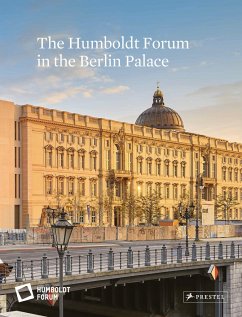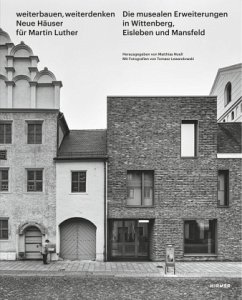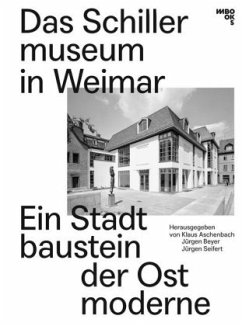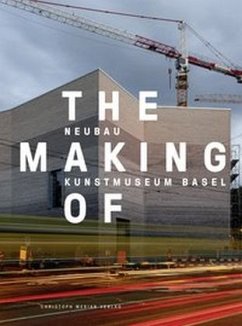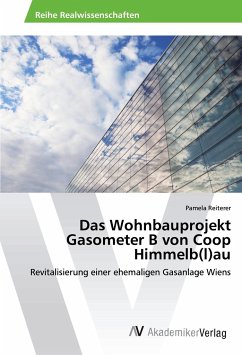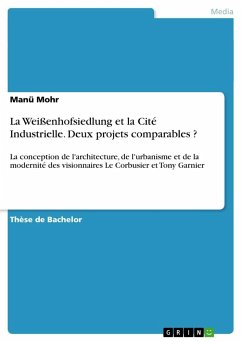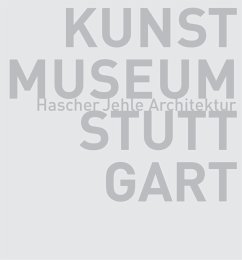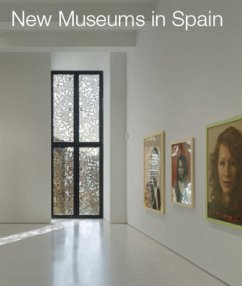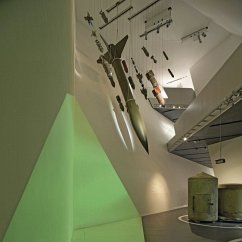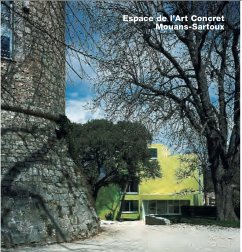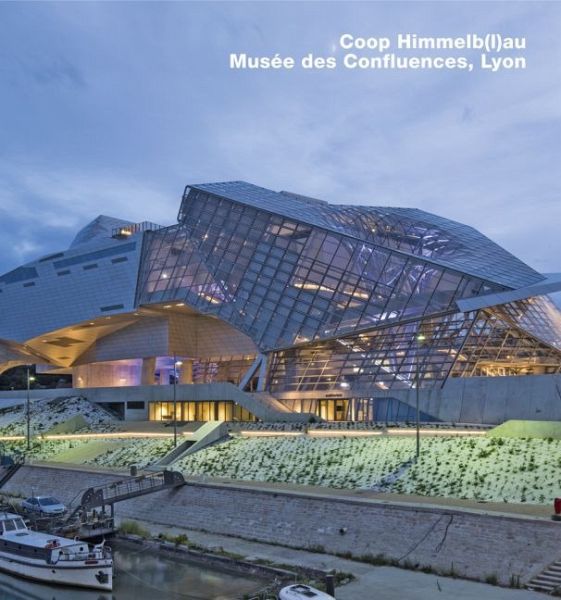
Coop Himmelb(l)au, Musée des Confluences, Lyon
Versandkostenfrei!
Versandfertig in 2-4 Wochen
36,00 €
inkl. MwSt.

PAYBACK Punkte
0 °P sammeln!
Since the end of the 20th century, an unprecedentednumber of remarkable museums havebeen built. None have had bigger worldwide implicationsthan Frank Gehry's Guggenheim Museumin Bilbao (1991-97). Until, that is, the newMusée des Confluences in Lyon was openedto the public, in late 2014. It was created byWolf D. Prix of the Coop Himmelb(l)au team,which was founded in the 1970s. Many avantgardegroups from those wild years - such asArchigram, Superstudio, Archizoom, Haus-Rucker-Co, and the Japanese Metabolists - arenow consigned to the past, but the Coop Himmelb(l)au architecture firm, whose spe...
Since the end of the 20th century, an unprecedented
number of remarkable museums have
been built. None have had bigger worldwide implications
than Frank Gehry's Guggenheim Museum
in Bilbao (1991-97). Until, that is, the new
Musée des Confluences in Lyon was opened
to the public, in late 2014. It was created by
Wolf D. Prix of the Coop Himmelb(l)au team,
which was founded in the 1970s. Many avantgarde
groups from those wild years - such as
Archigram, Superstudio, Archizoom, Haus-Rucker-
Co, and the Japanese Metabolists - are
now consigned to the past, but the Coop Himmelb(
l)au architecture firm, whose special aspiration
was always to bring into the world buildings
that overcome the pull of the earth - buildings
"to float on the horizon like clouds" - is
more in demand than ever.
The finest demonstration of this endeavour to
date can now be admired in Lyon. Functioning
as a museum of human history, this impressive
concrete, metal and glass colossus truly does
appear to float above the peninsula at the confluence
of the Rhône and the Saône. Like the
Guggenheim Museum in Bilbao, this new building,
so impossible to overlook, is an inspiration
for the revitalisation of disrupted urban areas and
the valorisation of derelict industrial areas - within
the city precincts, but also far beyond Lyon.
This Opus volume deals with the origins, construction,
function and formal appearance of the
Musée des Confluences, and also offers a preliminary
theoretically based evaluation of the architecture
of the building.
Frank R. Werner was professor of history and
architecture theory at the Staatliche Akademie
der Bildenden Künste Stuttgart from 1990 until
1994 and director of the Institut für Architekturgeschichte
und Architekturtheorie at the Bergische
Universität in Wuppertal from 1993 until his retirement
in 2012. He studied painting, architecture
and history of architecture in Mainz, Hanover and
Stuttgart. Christian Richters studied communication
design at the Folkwangschule in Essen. He
is one of the most sought-after architecture photographers
in Europe. To date he has been represented
in the Opus series by 13 volumes, including
ones about the embassies of the Nordic
countries and the Bode Museum in Berlin, the
Nieuwe Luxor Theater in Rotterdam and the
BMW Welt in Munich.
See also: Opus 66. Coop Himmelb(l)au, BMW
Welt, München, Edition Axel Menges 2009.
number of remarkable museums have
been built. None have had bigger worldwide implications
than Frank Gehry's Guggenheim Museum
in Bilbao (1991-97). Until, that is, the new
Musée des Confluences in Lyon was opened
to the public, in late 2014. It was created by
Wolf D. Prix of the Coop Himmelb(l)au team,
which was founded in the 1970s. Many avantgarde
groups from those wild years - such as
Archigram, Superstudio, Archizoom, Haus-Rucker-
Co, and the Japanese Metabolists - are
now consigned to the past, but the Coop Himmelb(
l)au architecture firm, whose special aspiration
was always to bring into the world buildings
that overcome the pull of the earth - buildings
"to float on the horizon like clouds" - is
more in demand than ever.
The finest demonstration of this endeavour to
date can now be admired in Lyon. Functioning
as a museum of human history, this impressive
concrete, metal and glass colossus truly does
appear to float above the peninsula at the confluence
of the Rhône and the Saône. Like the
Guggenheim Museum in Bilbao, this new building,
so impossible to overlook, is an inspiration
for the revitalisation of disrupted urban areas and
the valorisation of derelict industrial areas - within
the city precincts, but also far beyond Lyon.
This Opus volume deals with the origins, construction,
function and formal appearance of the
Musée des Confluences, and also offers a preliminary
theoretically based evaluation of the architecture
of the building.
Frank R. Werner was professor of history and
architecture theory at the Staatliche Akademie
der Bildenden Künste Stuttgart from 1990 until
1994 and director of the Institut für Architekturgeschichte
und Architekturtheorie at the Bergische
Universität in Wuppertal from 1993 until his retirement
in 2012. He studied painting, architecture
and history of architecture in Mainz, Hanover and
Stuttgart. Christian Richters studied communication
design at the Folkwangschule in Essen. He
is one of the most sought-after architecture photographers
in Europe. To date he has been represented
in the Opus series by 13 volumes, including
ones about the embassies of the Nordic
countries and the Bode Museum in Berlin, the
Nieuwe Luxor Theater in Rotterdam and the
BMW Welt in Munich.
See also: Opus 66. Coop Himmelb(l)au, BMW
Welt, München, Edition Axel Menges 2009.
Dieser Artikel kann nur an eine deutsche Lieferadresse ausgeliefert werden.



